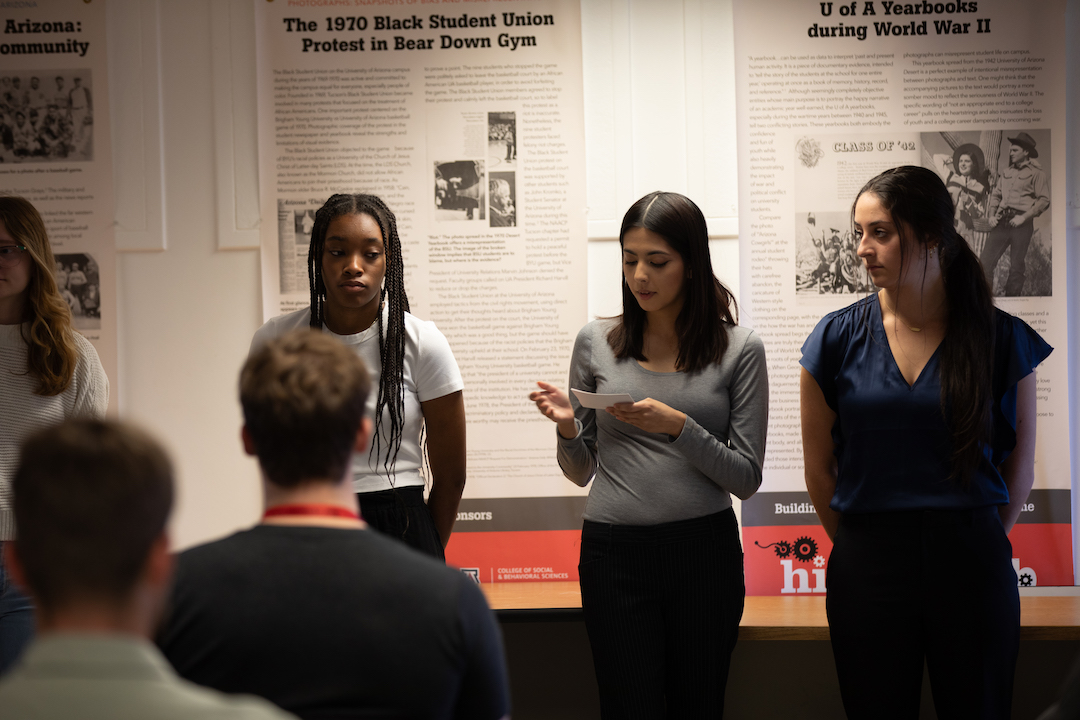experiential learning: (noun)
/ikˌspirēˈen(t)SH(ə)l/ /ˈlərniNG/
an approach to education where students learn by doing
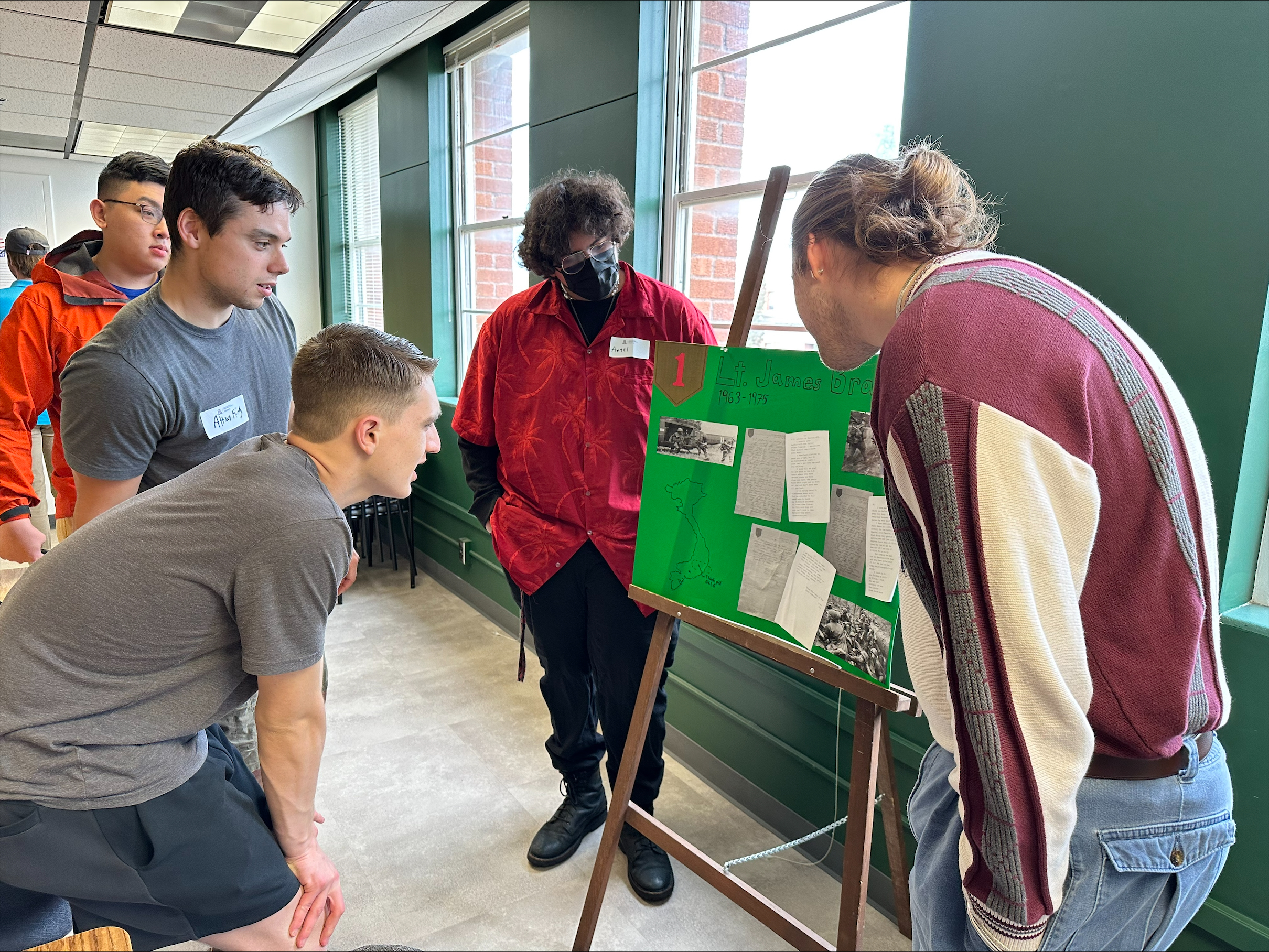
The PHC MakerSpace exists partly to offer opportunities for students to display and present their work. From archival research on posters to digital story maps, students in UArizona History courses do not just learn history, they do history.
Experiential learning has been an idea in education for centuries. Aristotle was known to assert that application of learning was the best way to assess whether a student had really understood a particular lesson. Later thinkers like Swiss educator Johann Heinrich Pestalozzi, Italian innovator Maria Montessori continued to advocate for combining philosophical thinking with hands-on learning.
In the United States, the educational practice began with fits and starts. Before compulsory education became standard practice in the United States in the early 20th century, many children had either not gone to school or had learned "manual training." These skill-based educational settings had racialized, colonial, and gendered aims at times, but the skills they taught were often useful for students who wanted to avoid the drudge of factory labor and engage in skilled trades. In contrast, academic schools were increasingly demanding that students be forced to sit still, commit material to rote memory, and "behave" at the hands of authoritarian teachers.
In the early 20th century, American educational philosophers like John Dewey began to advocate for schools to change their approach to education by intentionally incorporating experiential learning. These education reformers pushed for the radical possibilities of public education. They believed schooling should help children access economic upward mobility and democratize access to knowledge for members of society beyond the elite. As a National Endowment for the Humanities online exhibit about Dewey's approach to education explains, "Dewey insisted that the old model of schooling—students sitting in rows, memorizing and reciting—was antiquated. Students should be active, not passive. They required compelling and relevant projects, not lectures. Students should become problem solvers. Interest, not fear, should be used to motivate them. They should cooperate, not compete."
Other reformers began unique schooling across the country. The Highlander School, begun by Myles Horton in Tennessee as the Great Depression descended on the nation, is one example. Many times these schools were situated in radical critique of both "traditional" education and the economic exploitation of workers. They promoted Civil Rights and empowerment of marginalized peoples.
In the 1960s, Brazilian educational philosopher Paulo Freire provided further inspiration for experiential education arguing that "education is suffering from narration sickness" (Freire, Pedagogy for the Oppressed, 72) and needed to be reformed into a practice of inquiry and experience where students are empowered in their own learning and are not regarded as passive receptacles of the teacher's knowledge.
This engaged and empowered learning is essentially what experiential education promotes.
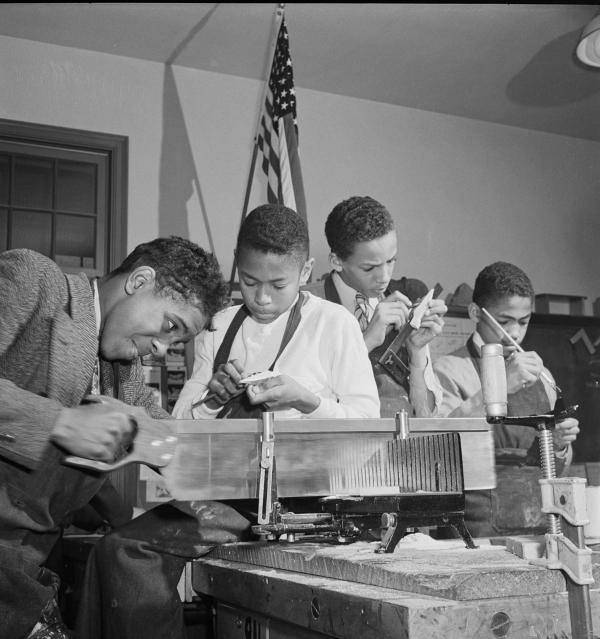
National Endowment for the Humanities
Today, experiential learning is being embraced for all the potential it holds. After a long, mid-20th century divide between "academic" learning and skill-based learning, and in spite of the turn toward standards-based education of the early 2000s, experiential learning in the United States (sometimes also known as Project-Based Learning) is being incorporated into all levels of education from elementary school through higher education. Research on learning and teaching confirms that when students are active in their learning, they retain information better and build skill sets that will benefit them in a variety of settings beyond their formal schooling.
Further Reading
Boston University Center for Teaching and Learning
Association for Experiential Education
The Department of History asks students (both graduate and undergraduate) to "experience" history education in a number of ways. Professors ask students to present their work for public audiences, research in archives, create digital products of their learning and much more.
Sometimes these experiential learning opportunities result in displays of student work in the PHC MakerSpace.
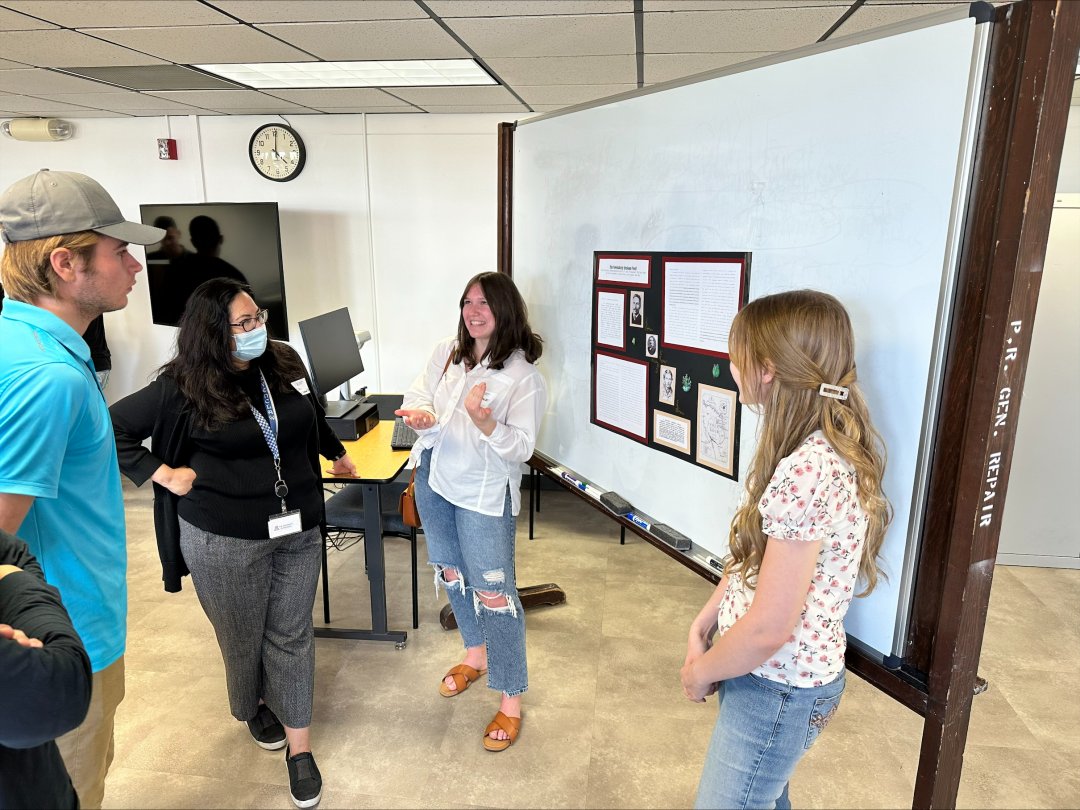
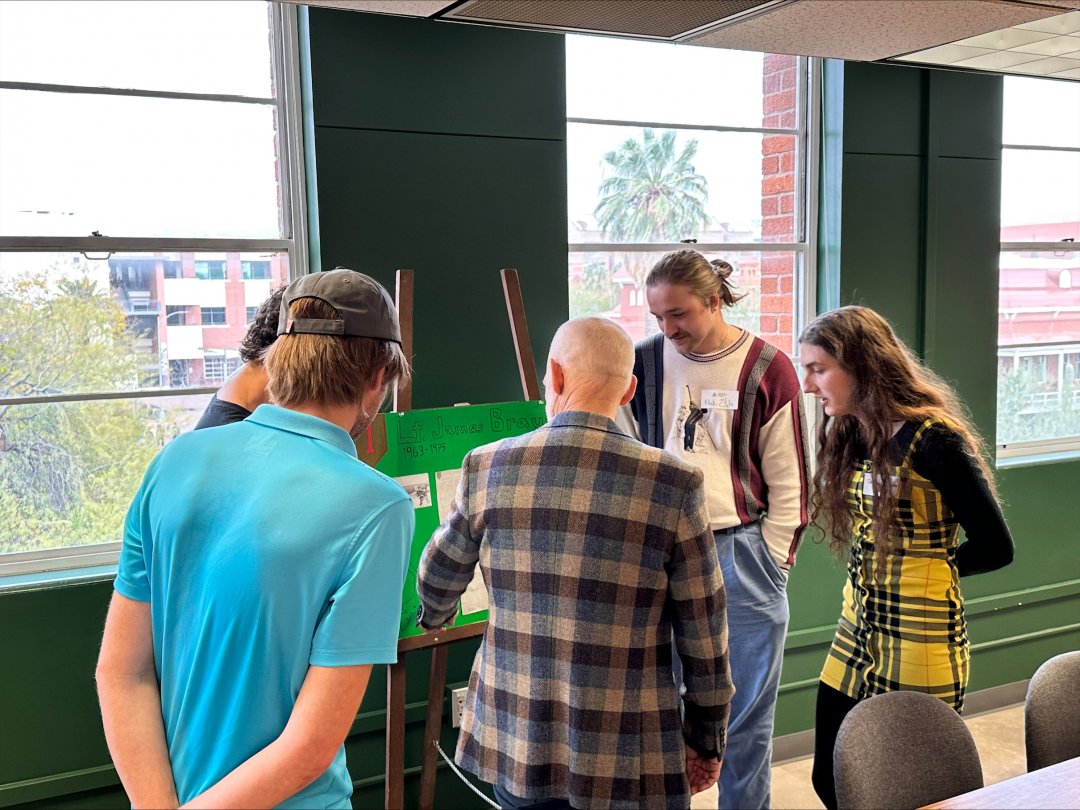
Sometimes these experiential learning opportunities encourage students to experience historically accurate worlds in digital gaming contexts such as the innovative partnership between professors Alison Futrell and Paul Milliman and World's Edge, the creators of Age of Empires IV.
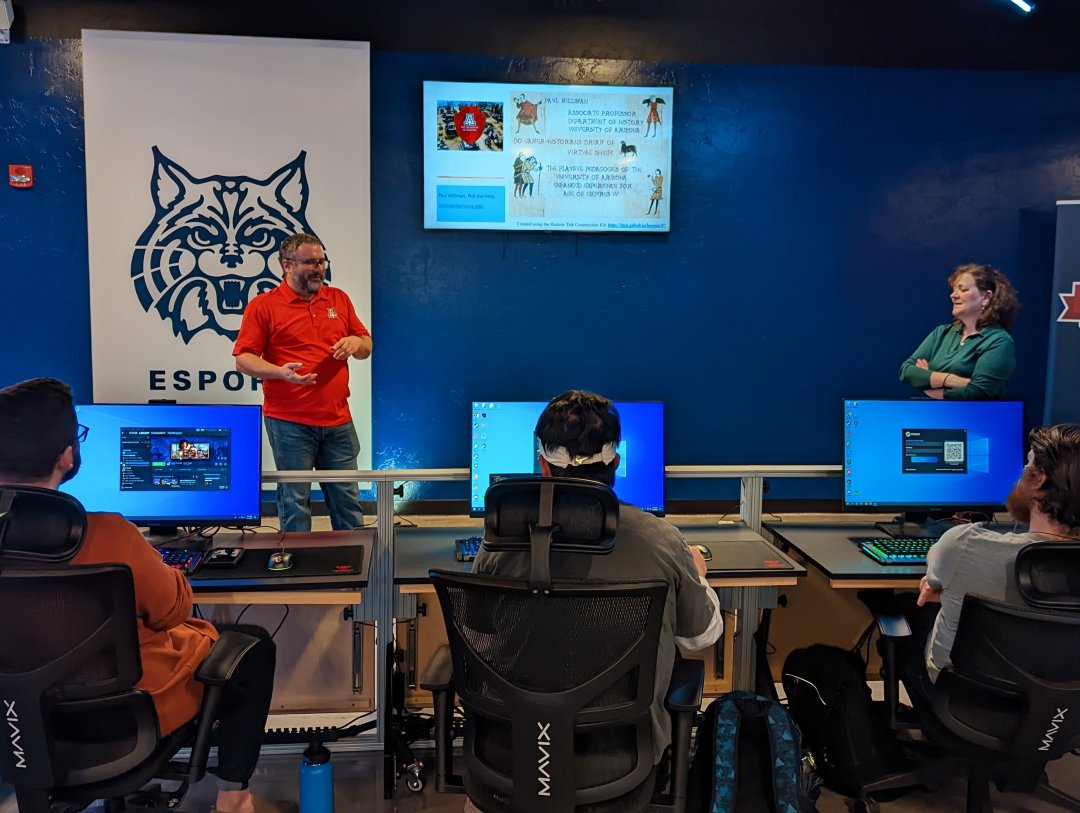
To listen to their presentation Click Here!
Sometimes these experiential learning opportunities allow students to leave campus and engage with community partners like the Arizona Historical Society. For example, students in Katherine Morrissey's HIST 498 course create research projects for the Arizona Historical Society's History Lab exhibit.
To Learn How to Visit the History Lab Click Here!
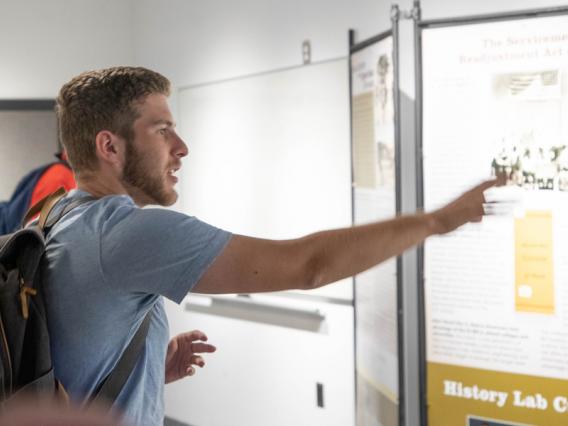
In 2025, the Department of History faculty and students engaged in a number of engaged learning experiences - including in the archives, in museums, and in public presentations of work.
Students in HIST 355, United States Environmental History visit the archive to learn about photography as important raw materials for the making of history. @ The Center for Creative Photography.
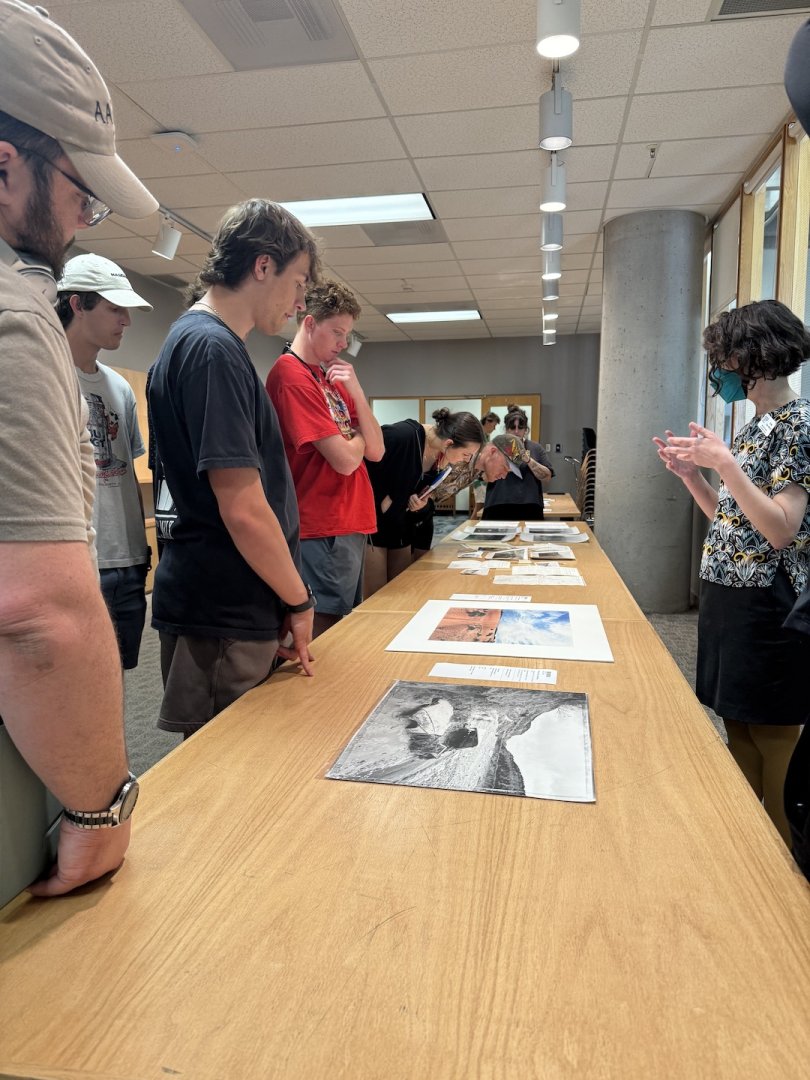
Students taking the General Education Course "Tucson Matters" partnered with the African American Museum of Southern Arizona at the University of Arizona to research little known histories from the Black community of Tucson and southern Arizona. Pictured below are students presenting their project for a public audience.
